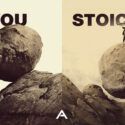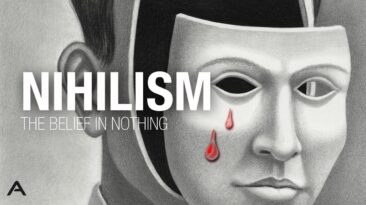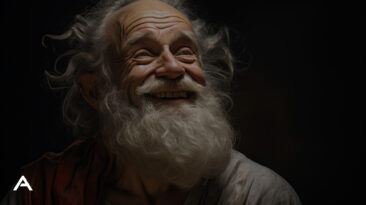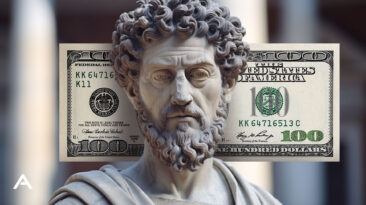“We suffer more in imagination than in reality.” – Seneca
In the city of Cyprus in 300 BC, there lived a very wealthy trader called Zeno. While on a voyage from Phoenicia to Piraeus, his boat sank, along with all of his cargo. Because of that single event, an event that was entirely out of Zeno’s or anyone’s control, this very wealthy man suddenly became poor in an instant.
Imagine you were Zeno. How would you react to your entire life’s work getting flushed down the drain by the sheer force of nature? What is the proper reaction? Would you be angry? Sad? Would you feel life has cheated you? For most of us, these would all be normal reactions, but not for Zeno, the father of Stoicism.
One small change lasts an eternity, and one small reframing of your mindset can cascade into larger and more impactful changes later down the line. The core of Stoicism is the very definition of acceptance and indifference.
After reading the works of Socrates and other great philosophers, Zeno created and taught Stoicism. According to Zeno, although we don’t have much control over what happens to us, we do have control of how it affects us, and we must use this control to great effect. Rather than crying over spilled milk, or in this case, drowned goods, Zeno focused on maintaining his composure over the situation, remaining calm and neutral, despite his predicament.
Today, people inadvertently view Stoics as people who cannot be broken, people who don’t often linger to the emotional extremes, going through things like fits of rage or bouts of anxiety. But the original idea behind Stoicism was much more than that. Rather than just a way to describe people who are unemotional, Stoicism was a way to view, describe, and understand the world. It was a way of life, and that way of life has lasted for centuries. Stoic philosophy can be applied to situations today the same way it was applied thousands of years ago, and it’s benefits are just as impactful.
Stoicism allows us to process these negative emotions from negative experiences, and turn them into the thoughts that give us a unique perspective of the world. Perspective is everything, and everyone in the world has different experiences and thus different perspectives on things.
Since the Stoics gathered, discussed, and taught philosophy in a public place, their general philosophy was widely known. They believed that Stoic principles could greatly benefit anyone and everyone, and so it didn’t make sense for them to hide that knowledge behind the four walls of a school, or of the palace courtyards.
As a result, everyone from slave to Emperor could learn and become a Stoic, and they did.
Some of the world’s most notable Stoics include Epictetus, which translates to “acquired” as he was once owned as a slave, Seneca, who was a well-renowned statesman, and Marcus Aurelius, a Roman Emperor, and one of the most powerful men to have ever lived.
The early Stoics practiced what they preached, avoiding all forms of segregation and leading the fight against inequality. They even invented the word “cosmopolitan,” which literally means “citizen of the world”.
When people hear that word now, we think of cities like New York, Toronto, Dubai, and London because of how diverse they are, this was the type of unity and togetherness that the Stoics preached.
At the time of Stoicism’s foundation, women weren’t allowed to pursue philosophy, but Stoics disagreed with that completely.
Musonius Rufus, Epictetus’ teacher, once said, “it is not men alone who possess eagerness and a natural inclination towards virtue, but women also. Women are pleased no less than men by noble and just deeds, and reject the opposite of such actions. Since that is so, why is it appropriate for men to seek out and examine how they might live well, that is, to practice philosophy, but not women?”
Even at a time when it wasn’t popular, women were allowed to freely learn about Stoicism and become Stoics themselves.
So why do so many people adopt Stoicism as a way of life?
In a world full of unexpected turns of events, our emotions can tend to get in the way of things.
In reality, we don’t really get sad because bad things happen to us, we get sad because unexpected bad things happen to us. Rain is a good thing. It helps to water our plants, provides water for livestock, and keeps the temperature cool and humid. But the truth is, when that dark cloud catches you outside without an umbrella, it’s never a good experience.
So why don’t we start crying once it starts to rain? It’s because although the situation is bad, we’ve learned to expect rain. It’s something that is unavoidable, we can’t control the weather; although it sucks, the rain passes and the light returns. Stoicism teaches us that in the same way, we should expect that everything bad that can happen, will happen. Picture the worst outcome, and be content knowing it could happen.
One of the Stoic exercises is known as “voluntary discomfort,” an exercise aimed at increasing feelings of gratitude. Sleep on the floor of your kitchen, taking cold showers when you normally take hot ones, eat nothing but potatoes for a few days, things like this. This exercise helps you to understand that no matter how hard it gets, you’ll still survive and potentially thrive if your mindset is right. By being able to withstand these uncomfortable situations, we indirectly prepare our mental for future misfortunes.
With the current state of the world where advertisements are constantly shoved down our throats, we’re made to believe that if we don’t have the next best thing, look a certain way, or make a certain amount of money that we will never be happy, this message is important now more than ever.
We enter the world not knowing much of anything. We grow up being taught things at home, in school, and by observing the world for ourselves. The thing is, a lot of times, all three of these sources of knowledge teach us in different ways. The question is, do we need to internalize all of this knowledge? If we do, we could unknowingly be setting unrealistic expectations for our lives, leaving us ultimately disappointed and unsatisfied in the end. That’s no way to live. We should instead focus on improving ourselves, for ourselves. We should do things, for ourselves, and only for that reason. Attaching any external hope or secondary attachments to the actions we take almost always lead to disappointment.
Most of the time, we end up trying to fill that emptiness with external things. Blowing all your money on a fancy car, a house, or even starting a family. Sometimes we do all of these things for their external value, and not their internal value. But, Stoicism teaches that, if you approach life this way, you place your happiness in the hands of external forces, forces that can always fail. Cars almost always break down, natural disasters wipe away entire cities, and divorce rates climb higher and higher each year.
But even the free things in life come at a cost. The cost of space, both physical and mental.
As Seneca once wrote, “learning to live with less will create space in your life for the things that truly matter to you.”
Instead, we must place our happiness on our intrinsic value as humans and on nothing we have or can physically acquire. We must choose to do our best to keep a cool head, regardless of what life throws at us. Because regardless of what it is we want, at the end of the day, we don’t have any control over the majority of things that happen to us, but we do have all the control over how we react to those things. That is the dichotomy of control, the most important principle in Stoic philosophy.
In the words of Epictetus, “the chief task in life is simply this: to identify and separate matters so that I can say clearly to myself which are externals not under my control, and which have to do with the choices I actually control.”
Stoics teach that we must learn to separate what we can control from what we cannot control. We need to determine our value not from things we can’t control, but from the things we can. Striving towards goals is a good trait, but breaking down when those things don’t go your way is, in a Stoics point of view, useless.
Making YouTube videos is… well a lot easier than being a Roman Emperor, but it can still prove to be challenging sometimes. First, you must form your idea, which takes forever, then research that idea, scrap it because it sucks, start over, script the video, create the video, edit it, make the thumbnail, title, and everything else before you hit upload. Everything up until the point where you click upload is all up to you. However, once you click the upload button, the power shifts to the YouTube algorithm.
Still, a lot of people judge the success of their YouTube channel or Instagram account based on how many views and subscribers or followers that they have, metrics of which for the most part, are beyond your control. Stoics teach that instead, you should judge the success of your work based on the amount of effort you put in, and not the outcome of your external hopes.
Trust the process. Living with less means unbinding yourself from the societal handcuffs that you’ve essentially put yourself into.
Think about a person who has been working hard at their job for the past 6 months. He now feels he deserves a promotion, and so he walks up to his boss with his performance report. The boss says thanks, doesn’t grant him the promotion, and he goes home thinking he must suck at his job. He doesn’t consider that the boss might’ve simply woken up angry, someone else might have been better qualified at that time, or maybe the company was just losing money and just couldn’t afford it. He doesn’t know the reason, but he’s still upset.
If he simply placed his value on the quality of the performance report he turned in, kept doing what he was doing to earn the promotion he wanted, he could’ve been much happier overall.
With the right perspective, his goal wouldn’t have been diminished, but just postponed. It’s this reframing of your mindset that is crucial. A true Stoic does not view their successes based on the financial gain of their ventures, but is comforted by the fact that they can live a comfortable life without all the things money can buy.
There are the 4 main virtues of Stoicism – wisdom, courage, temperance, and justice.
Wisdom is being able to separate between what is internal and what is external, and the ability to choose our reaction to the things that happen to us. As Viktor Frankl said, “between stimulus and response, there is a space. In that space is our power to choose our response.”
Courage – two words – “persist and resist”.
Temperance, or moderation, is what I just did there, doing more with less, saying more with fewer words. While Jeff Bezos and Elon Musk are fighting at the top of Forbes’ list, Stoics believe that the limit of wealth should simply be having what is essential, and then having what is enough.
Justice is the most important of all the virtues. It instructs that no one should do harm to another because we were all born for each other, to do good to one another, and not to ourselves.
Nelson Mandela was one of the most famous African leaders in the world. While he was fighting against apartheid, he got sentenced to life imprisonment where he stayed for 27 years before finally being released. When he was released from prison, he was elected president of South Africa, and thus, many people thought he was going to brutally punish all the people that had anything to do with apartheid or his imprisonment, but of course, he did not.
Throughout his time in prison, Mandela read the works of Marcus Aurelius and learned many of the core values of Stoicism, all of which he practiced throughout his life. Instead of calling for the heads of the wrongdoers, Nelson Mandela urged his people to instead seek the opposite. To relax, and rebuild. He stressed that the past was now beyond their control, and that the only thing they could do was to find a way to move forward and build a better nation. This is the way of the Stoic.
In modern day medicine, Stoicism is at the core of procedures like Rational Emotive Behavioral Therapy and Logotherapy. REBT helps patients to identify negative thought patterns that might be causing emotional and behavioral issues. It allows you to challenge the reasoning behind all these negative thoughts with logic, and when you realize that many of them are unfounded, you can then replace them with more productive and healthier beliefs.
Logotherapy, on the other hand, is based on the Stoic principle that humans are driven by purpose. Even in the darkest of situations, we can fill our lives with meaning and happiness by simply finding out what that purpose is. As many of us know though, this is easier said than done
It’s a process, much like everything else. We have to rewire the way we think. Out with the old, in with the new.
To fix our problems with happiness, we must practice self-worth. By redirecting our definition of value to the things that we can control, we can stop getting fixated on the things that we cannot control, and overall, we can lead a much happier and more fulfilling life.
Stoicism helps us steer through past and present storms into calmer and more peaceful waters. And if our ship sinks and we all drown, we can take peace in the fact that we lived a good life, albeit not as long as we had hoped.
Because remember, everything has an end.
“What need is there to weep over parts of life, when the whole of it calls for tears.” – Seneca.



























